By Film Noir Blonde and Mike Wilmington
The Film Noir File is FNB’s guide to classic film noir, neo-noir and pre-noir on Turner Classic Movies (TCM). All movies below are from the schedule of TCM, which broadcasts them uncut and uninterrupted. The times are Eastern Standard and (Pacific Standard).
Pick of the Week
“Shadow of a Doubt”
(1943, Alfred Hitchcock). Sunday, Oct. 12; 8 p.m. (5 p.m.)
A bright and beautiful small town girl named Charlotte “Charlie” Newton (Teresa Wright) is bored, bored with her well-ordered home in her pretty Norman Rockwellish little city of Santa Rosa, California. It’s a place where trees line the sunlit streets, everyone goes to church on Sunday and lots of them read murder mysteries at night. Charlie has more exotic dreams. She adores her globe-trotting, urbane Uncle Charlie Oakley (Joseph Cotten) – for whom she was nicknamed – and is deliriously happy when he shows up in Santa Rosa for a visit.
But Uncle Charlie has some secrets that no one in his family or among their friends knows about. Not Uncle Charlie‘s adoring sister (Patricia Collinge), nor his good-hearted brother-in-law (Henry Travers), nor their murder-mystery-loving neighbor Herbie (Hume Cronyn), nor Charlie herself.
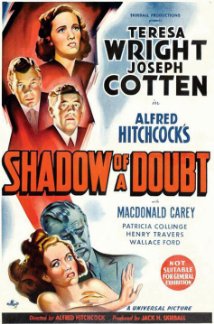 Uncle Charlie, who conceals a darker personality and profession beneath his charming persona, is on the run, pursued by a dogged police detective (Macdonald Carey), who suspects him of being a notorious serial killer – a murderer who seduces rich old widows, kills them for their money, and whose signature tune and nickname come from Franz Lehar’s “Merry Widow” waltz. As handsome, cold-blooded Uncle Charlie, Cotten, who called “Shadow” his personal favorite film, is, with Robert Walker and Anthony Perkins, one of the three great Hitchcockian psychopaths.
Uncle Charlie, who conceals a darker personality and profession beneath his charming persona, is on the run, pursued by a dogged police detective (Macdonald Carey), who suspects him of being a notorious serial killer – a murderer who seduces rich old widows, kills them for their money, and whose signature tune and nickname come from Franz Lehar’s “Merry Widow” waltz. As handsome, cold-blooded Uncle Charlie, Cotten, who called “Shadow” his personal favorite film, is, with Robert Walker and Anthony Perkins, one of the three great Hitchcockian psychopaths.
“Shadow of a Doubt,” released in 1943, was Hitchcock’s sixth American movie and the one he often described as his favorite. As he explained to Francois Truffaut, he felt that his critical enemies, the “plausibles,” could have nothing to quibble about with “Shadow.” It was written by two superb chroniclers of Americana, Thornton Wilder (“Our Town”) and Sally Benson (“Meet Me in St. Louis”), along with Hitch‘s constant collaborator, wife Alma Reville. The result is one of the supreme examples of Hitchcockian counterpoint – an American small town nightmare: with a sunny, beguiling background against which dark terror erupts.
Friday, Oct. 10
6:30 p.m. (3:30 p.m.): “Illegal” (1955, Lewis Allen). Edward G. Robinson in one of his better later roles: as a district attorney turned big-bucks defense attorney for mostly rich guilty clients, who tries to regain his integrity with a sensational murder trial. Directed by Lewis Allen (“Desert Fury,“ “Suddenly”); based on Elliot Nugent’s 1932 “The Mouthpiece.” With Nina Foch (the defendant), Jayne Mansfield, Hugh Marlowe and Albert Dekker.
Sunday, Oct. 12
8 p.m. (5 p.m.): “Shadow of a Doubt” (1943, Alfred Hitchcock). See Pick of the Week. [Read more…]
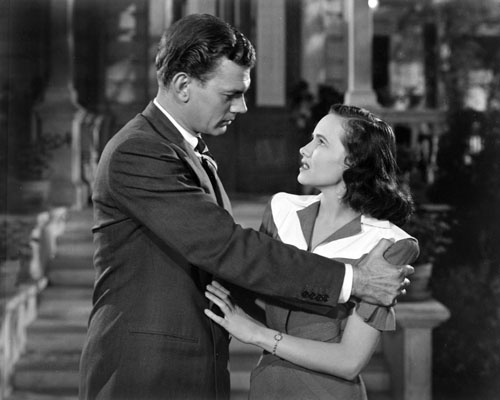






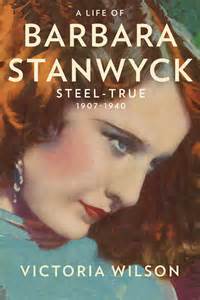
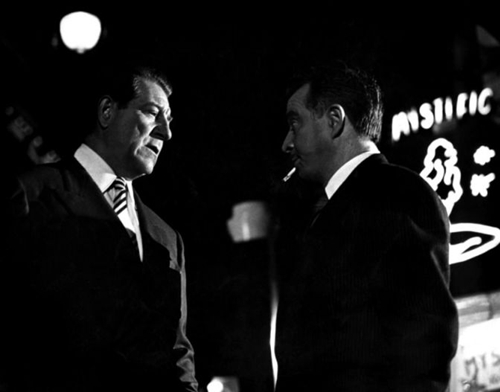
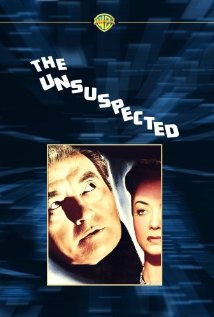

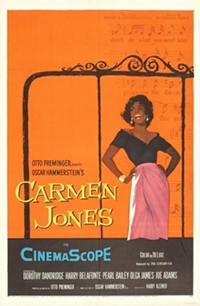
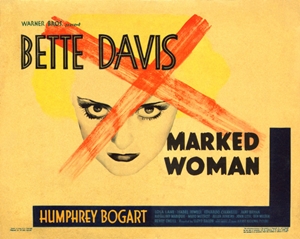





From FNB readers